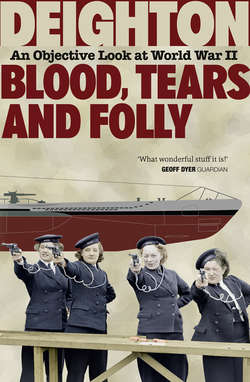Читать книгу Blood, Tears and Folly: An Objective Look at World War II - Len Deighton - Страница 45
Versailles – the peace treaty
ОглавлениеThe treaty the great powers signed in 1919 to end the First World War remains one of the most controversial historic documents of the twentieth century. The American President Wilson arrived in Europe with his own programme for a lasting peace. We will never know if his ideas were sound, for his Allies would have nothing to do with his ‘Fourteen Points’. Georges Clemenceau said: ‘Mr Wilson bores me with his Fourteen Points; why, God Almighty only had ten.’ Some said Wilson’s proposals were altruistic. Certainly there was nothing benevolent about the twisted political wrangling of the European politicians, but the treaty that finally emerged was not vindictive compared with Germany’s peace with France in 1871 or the terms Germany inflicted upon Lenin’s Russia in 1917.
In postwar Germany, politicians made much of the £1,000 million charged to Germany in reparations. Less was said about the £1,500 million loaned to her by Britain and the United States. The peace terms laid down that Germany could have an army no bigger than 100,000 men and must not build or buy tanks, submarines and aircraft. Few Germans recognized that this would aid their economic recovery; rather it was seen as an insulting and unreasonable order that had to be flouted and eventually rectified.
Perhaps the path to true democratic government would have proved more certain had the monarchy been maintained. Certainly a hereditary monarchy makes it more difficult for tyrants like Hitler to become the head of state.15 As it was, Germany’s postwar democratic government – the Weimar Republic – was ridiculed as a puppet regime that implemented the forceful terms of the victors.
The most far-reaching effects of the peace treaty were the frontiers it drew. Austria-Hungary was split into pieces by the victors. The lines scrawled across the map cared nothing about consigning large numbers of Germans to live under foreign governments. Eventually, in Czechoslovakia and Poland, these vociferous expatriate communities were orchestrated and used by Hitler as an excuse for invasion.
